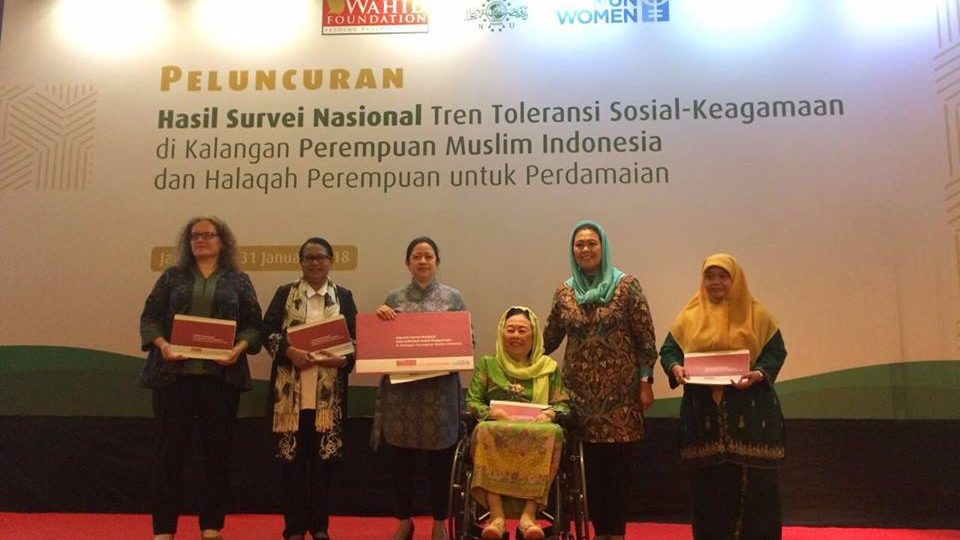Given fears about increased tensions between the Islamic majority and minority groups in Indonesia, many people want to know who can help turn back the tide of intolerance and return the country to the pluralistic roots of its state ideology of Pancasila.
Once again, it may fall upon women to show the way.
According to a new survey conducted by UN Women and the Wahid Foundation, 80.7% of Indonesian Muslim female respondents said they support the right to freedom of religion (specifically, the freedom to practice religions or belief systems outside of the six officially recognized in Indonesia). That’s compared to 77.4% of Muslim male respondents.
The survey also showed that women were less likely to become radicalized than men, with 80.8% of women saying they would not engage in radical behavior (defined by the survey as actions such as doing vigilante raids on businesses not complying with sharia law or protesting against the opening of another religion’s house of worship) compared to to 76.7% of males respondents. Only 2.3% of women and 5.2% of men said they were willing to engage in radical behavior.
Wahid Foundation director Yenny Wahid (daughter of former president and defender of pluralism KH Abdurrahman Wahid) said the survey’s results showed that women might be the key to deescalating tensions in Indonesia.
“Women are strategic actors in the effort to strengthen tolerance and peace,” Yenny said at a press conference in Jakarta yesterday as quoted by Detik.
https://www.instagram.com/p/BeiBponFodf/?hl=en&taken-by=wahidfoundation
A large part of the survey asked about attitudes towards groups that are often viewed negatively in Indonesia, including communists, the LGBT community and racial and religious minorities. Respondents were asked if they were willing to accept individuals from these groups as their neighbors, teachers in their school or political leaders. If not, then the survey categorized them as intolerant.
Overall, the survey showed that 57.1% of Indonesian Muslims were intolerant of one or more groups, a significant increase over the last time the poll was conducted in 2016 when that number was 51%. This year’s survey also found that 55% of women showed intolerant attitudes towards certain groups, as compared to 59.2% of men.
Interestingly, in the 2016 survey the LGBT community received the largest percentage of intolerant attitudes from respondents (26.1%), followed by communists (16.7%). Despite the current resurgence in anti-LGBT rhetoric in Indonesia, communists have actually risen to the #1 spot with 21.9% and LGBT was second with 17.8%.
Yenny noted that the increasing intolerance towards communists, which have been banned and inactive in Indonesia since the country’s bloody 1965 communist purge, was clearly a sign of political actors manipulating people’s fears. She also noted that despite the major protests against former Jakarta Governor Basuki “Ahok” Tjahaja Purnama, intolerant attitudes towards the Chinese community remained small with just .7% of respondents saying they should not be given their basic constitutional rights.
The survey was conducted in October 2017 and involved 1,500 respondents in all 34 of Indonesia’s provinces chosen through multistage random sampling. The margin of error is approximately 2.6% with a 95% confidence level.




